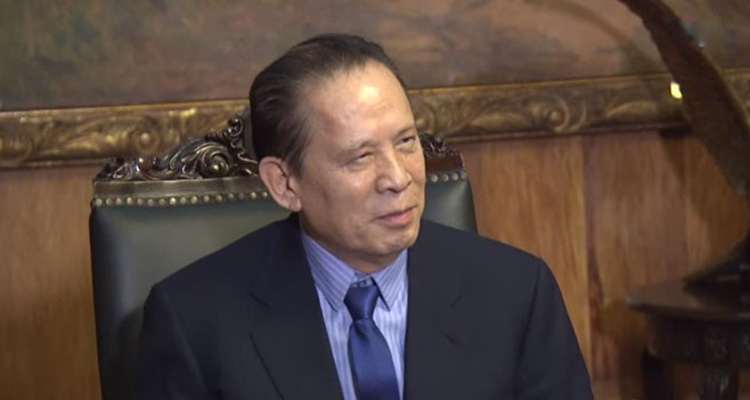American casino operator Wynn Resorts Limited has announced the signing of an agreement to settle its long-running legal battle with Tokyo-based gaming machine manufacturer Universal Entertainment Corporation.
The Las Vegas-headquartered firm, which was thrown into turmoil early last month following the resignation of its Chairman and Chief Executive Officer, Steve Wynn, due to multiple allegations of sexual misconduct, revealed via an official press release that the deal will see it pay Universal Entertainment Corporation some $2.4 billion in cash.
Wynn Resorts Limited stated that the agreed settlement is to be handed over by the end of the month and will also release the Japanese firm and its Aruze USA Incorporated subsidiary from a stockholders agreement they inked with Wynn Resorts Limited in 2010.
Universal Entertainment Corporation became the largest Wynn Resorts Limited stakeholder in 2010 when its then-Chairman, Kazuo Okada (pictured), agreed a deal to purchase some 24.55 million shares through the Honshu firm’s Aruze USA Incorporated subordinate. However, this stake was controversially forcibly redeemed at a discount two years later after the septuagenarian was allegedly accused of illegally bribing gaming officials in the Philippines in order to realize his $2 billion Okada Manila integrated casino resort.
The matter has since been winding its way through Nevada’s court system while the pact from eight years ago moreover meant that neither 76-year-old Wynn nor his former wife could redeem any of their shares in Wynn Resorts Limited without first getting the consent of Universal Entertainment Corporation, which is now led by 59-year-old Jun Fujimoto.
“Kazuo Okada is not a party to the settlement agreement and nothing in the settlement agreement is intended to be construed as giving a release of any kind to Kazuo Okada,” read a Friday statement (pdf) from Universal Entertainment Corporation. “Further, the company and Wynn Resorts [Limited] have agreed to reasonably cooperate with each other in any future litigation against third parties.”



